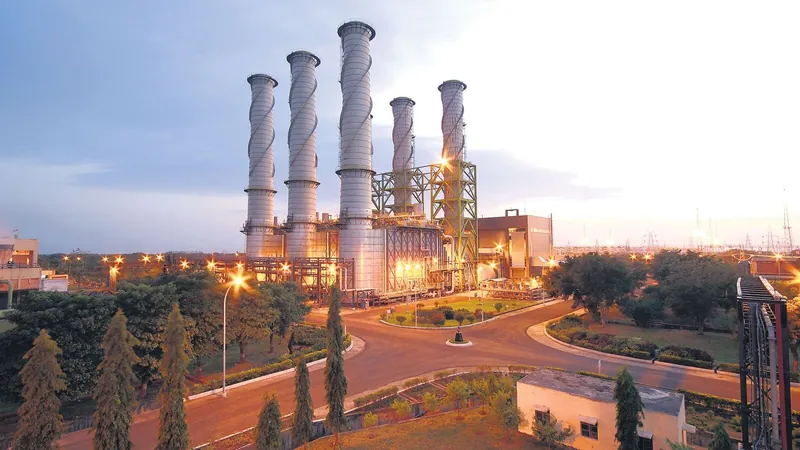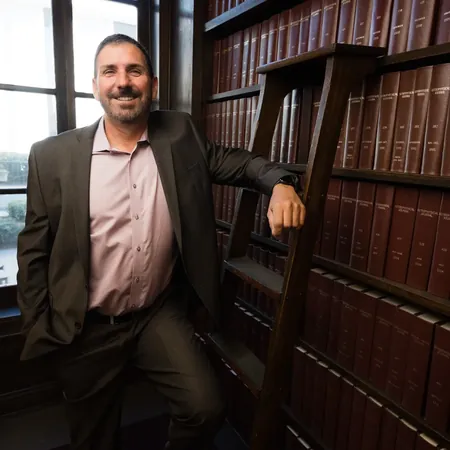
NTPC Set to Revolutionize Aviation with Sustainable Fuel: Major Airlines in Talks!
2024-11-25
Author: Siti
In a groundbreaking move towards sustainable aviation, NTPC Green Energy Limited (NGEL) is reportedly in early discussions to supply Sustainable Aviation Fuel (SAF) to major airlines, including British Airways and Lufthansa. This cleaner aviation fuel will be sourced from NGEL’s innovative green hydrogen hub in Pudimadaka, Andhra Pradesh, which is projected to kick off production around 2026-27.
According to a source familiar with the negotiations, NGEL has initiated talks with several potential SAF buyers. However, these discussions are still in their infancy, as the aviation industry awaits the establishment of standards for SAF, both in India and globally. This regulatory clarity is crucial for finalizing offtake agreements that could significantly impact the market.
A spokesperson from Lufthansa confirmed that while they could not provide details on specific commercial discussions, they remain one of Europe’s leading purchasers of SAF and are interested in increasing their supply of this green resource. Singapore Airlines also chose not to comment on any confidential negotiations they might be engaged in. Queries sent to NTPC, British Airways, and Virgin Atlantic have yet to receive a response.
What is Sustainable Aviation Fuel (SAF)?
SAF is a type of fuel generated from non-traditional feedstocks, including grains, alcohol, and food waste, offering a cleaner alternative to conventional jet fuel. NGEL's green hydrogen hub, covering a vast 1,600 acres near Visakhapatnam, aims to produce not just SAF, but also green hydrogen, green ammonia, green methanol, and more, capitalizing on a projected investment of ₹1.85 trillion.
With an ambitious output plan that includes 1,500 tonnes of SAF daily, the hub represents NTPC’s strategic pivot towards decarbonizing its operations and embracing the green energy revolution. As the window for coal-based power sources closes, NGEL is committed to advancing its green energy capacity, which is set to grow from the current 6 gigawatts (GW) to an impressive 19 GW by 2027, with a substantial focus on solar energy for its projected 60 GW capacity by 2030.
The Future of SAF: Demand Expectations and Regulatory Landscape
The demand for SAF is on the rise globally, spurred by governments implementing mandates for its use by airlines. The UK is leading the charge, with plans to initiate a SAF mandate in 2024, starting at 2% of total jet fuel demand and scaling up to 10% by 2030, eventually reaching a steady-state obligation of 22% by 2040.
In India, the government aims to introduce a mandatory 1% SAF blending requirement starting in 2025, ramping up further as international mandates emerge. Recent reports indicate that India's plans for blending SAF with aviation turbine fuel (ATF) for domestic flights may only be finalized after the global mandates go into effect in 2027.
As we stand on the brink of a sustainable energy revolution, Indian state-owned energy companies, including oil refining giants Indian Oil Corporation and Bharat Petroleum Corporation, are also diving into the SAF market, signaling a broader shift in India’s energy landscape. With ambitious goals set for achieving net-zero emissions by 2070, the country is poised to become a significant player in the sustainable aviation fuel sector.
The aviation industry’s transition to SAF is not merely a trend; it’s a necessary evolution for the future of air travel. Are we witnessing the dawn of a new era in aviation sustainability? Stay tuned as these discussions unfold and pave the way for greener skies!




 Brasil (PT)
Brasil (PT)
 Canada (EN)
Canada (EN)
 Chile (ES)
Chile (ES)
 España (ES)
España (ES)
 France (FR)
France (FR)
 Hong Kong (EN)
Hong Kong (EN)
 Italia (IT)
Italia (IT)
 日本 (JA)
日本 (JA)
 Magyarország (HU)
Magyarország (HU)
 Norge (NO)
Norge (NO)
 Polska (PL)
Polska (PL)
 Schweiz (DE)
Schweiz (DE)
 Singapore (EN)
Singapore (EN)
 Sverige (SV)
Sverige (SV)
 Suomi (FI)
Suomi (FI)
 Türkiye (TR)
Türkiye (TR)